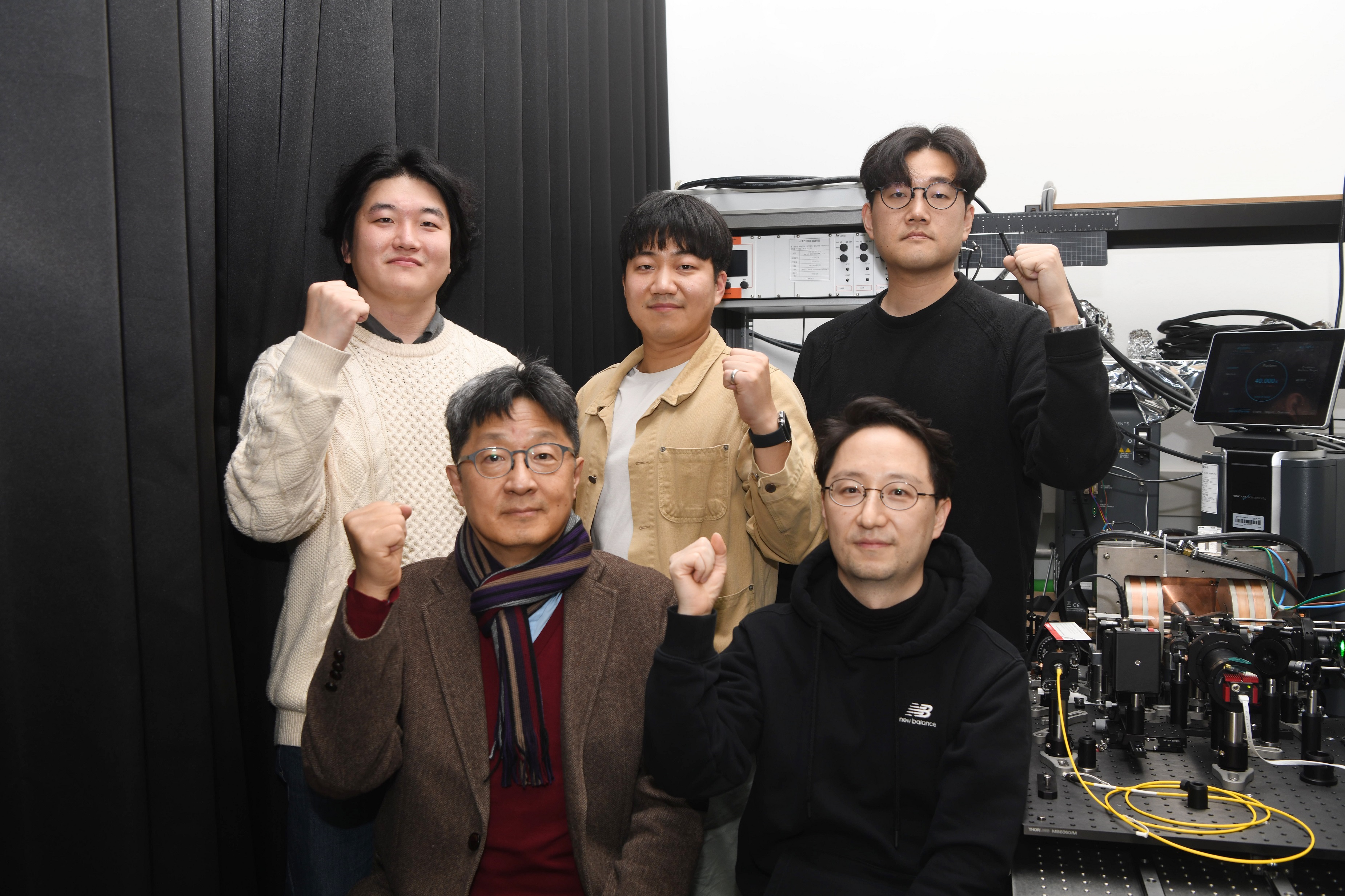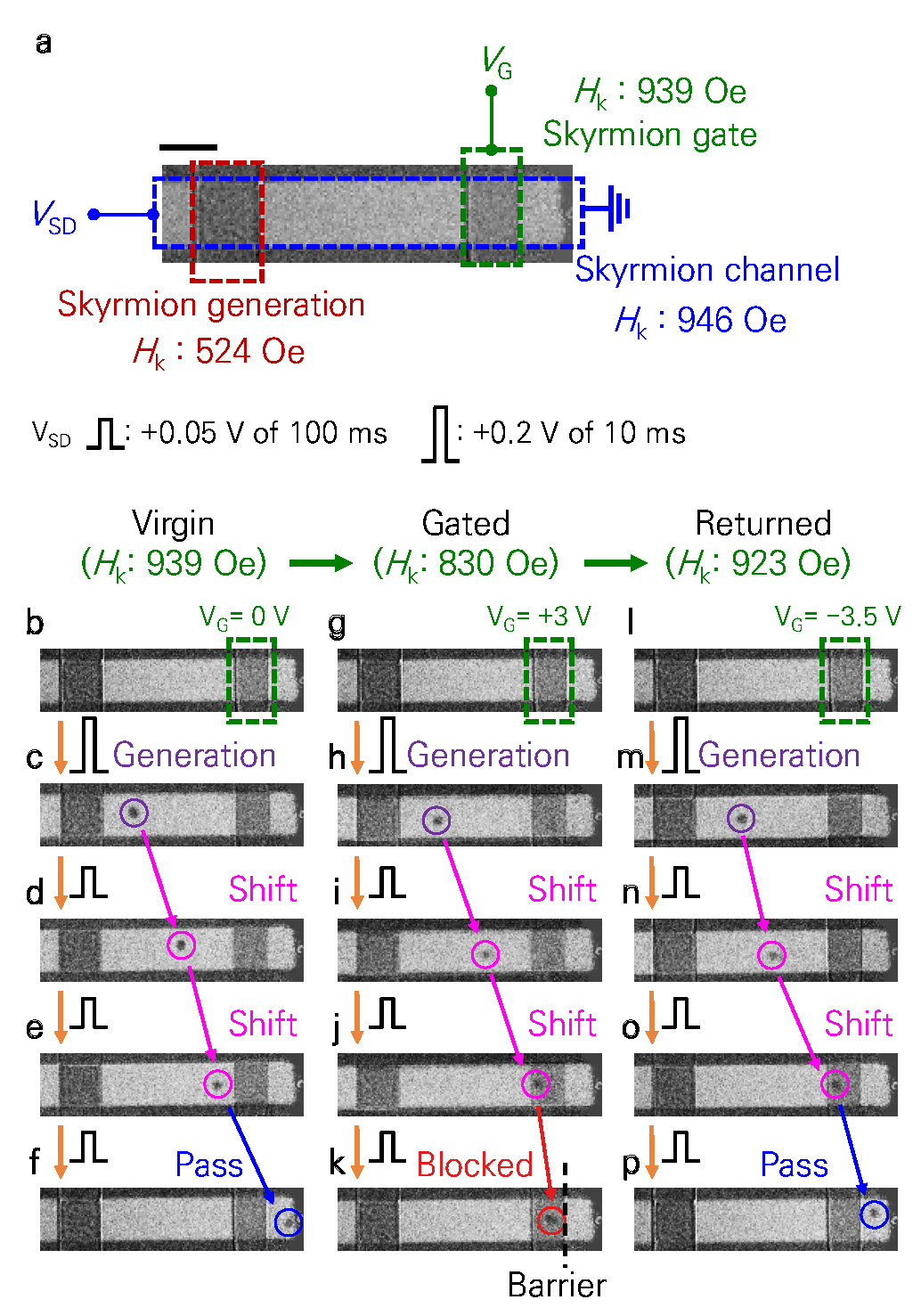KRISS Propels Quantum and AI Research with New Skyrmion Transistors
- Writerkrissadmin
- Date2023-05-24 00:00
- Hits490
KRISS Propels Quantum and AI Research with New Skyrmion Transistors
- KRISS paves the way for spintronics technology revolution by implementing the world’s first skyrmion transistors -
- Skyrmion flow control is expected to accelerate development of next-generation ultra-low-power devices -
In an era marked by an escalating energy crisis, the world stands on the precipice of a transformative revolution in spintronics technology, promising ultra-low power consumption paired with superior performance. To illustrate the potential, consider this: the power consumed by AlphaGo during its famous Go game in 2016 equaled the daily power use of 100 households. By 2021, Tesla's autonomous driving AI required over ten times that amount of power for learning.
In response to this growing demand, the Korea Research Institute of Standards and Science (KRISS, President Hyun-min Park) has pioneered the world's first transistor capable of controlling skyrmions. This breakthrough paves the way for the development of next-generation ultra-low-power devices and is anticipated to make significant contributions to quantum and AI research.

▲ KRISS Quantum Spin Team
Skyrmions, arranged in a vortex-like spin structure, are unique because they can be miniaturized to several nanometers, making them movable with exceptionally low power. This characteristic positions them as a crucial element in the evolution of spintronics applications.
The explosive growth of electronic engineering in the 21st century can be traced back to the 1947 invention of the transistor at Bell Laboratories in the United States. Acting as an amplifier and switch for electrical currents, the transistor has been pivotal in the field of electronic engineering. The discovery of the skyrmion in 2009 sparked widespread research into a skyrmion-based transistor, but the absence of essential technology to control skyrmion movement thwarted these efforts.
This bottleneck has been overcome with KRISS's newly developed skyrmion transistor, which leverages proprietary technology to electronically manage the movement of skyrmions created in magnetic materials. This innovative solution enables the precise control of skyrmion flow or halting, akin to how conventional transistors modulate electric current.
A critical aspect of managing magnetic skyrmion movement lies in controlling magnetic anisotropy, which influences the energy of skyrmions. Previous research endeavored to regulate magnetic anisotropy through oxygen movement within devices but failed to achieve uniform control. Overcoming this challenge, the KRISS Quantum Spin Team developed a groundbreaking method for uniform control of magnetic anisotropy by leveraging hydrogen within aluminum oxide insulators, marking a world-first in the experimental implementation of skyrmion transistors.

▲ Operation of a skyrmion transistor
This milestone represents yet another foundational technology for spintronic devices, following the institute's 2021 achievement in the generation, deletion, and movement of skyrmions. The advent of the spintronics transistor is set to expedite the development of spintronics-based devices, such as neuromorphic and logic devices, which offer substantial advantages in power consumption, stability, and speed over traditional electronic devices.
Dr. Chan Yong Hwang, a director of the KRISS Quantum Technology Institute, expressed, "Major Korean companies are pivoting their focus to next-generation semiconductors that utilize spintronics to transcend the constraints of current silicon semiconductors. We plan to advance spintronics-related technology further and incorporate them into next-generation semiconductor devices and quantum technology."
Reflecting on the significance of the achievement, Dr. Seungmo Yang, a senior researcher at KRISS, stated, "The transistor ignited the digital revolution of the 20th century. Now, the skyrmion transistor is poised to catalyze a similar transformation, propelling the spintronics technology revolution of the 21st century."
This study was supported by various programs of the National Research Foundation of Korea(NRF) and was jointly conducted by the Quantum Spin Team of the Quantum Technology Institute, Prof. Bae Ho Park’s team at Konkuk University, Prof. Sungkyun Park’s team at Pusan National University, and Dr. Hee-sung Han of UNIST. The results were published as a frontispiece in the world-renowned journal Advanced Materials (IF: 32.086) in December last year.

